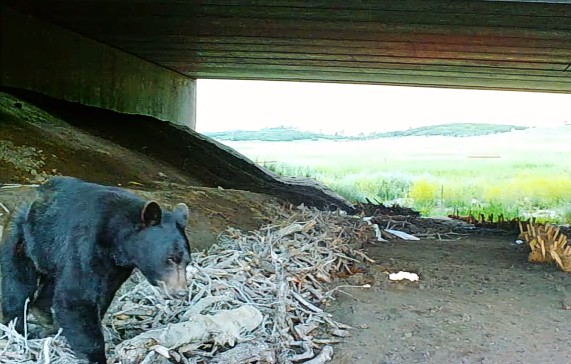A car slamming into a moose doesn’t end with any winners, and Colorado lawmakers are looking at a $25 million bill — and potentially many times that amount from federal help — to prevent more motorists from testing that rule.
Senate bill 151 would tab that money for safe wildlife crossings around the state’s highways and interstates and, backers hope, leverage federal money from the bipartisan infrastructure bill to goose the effort. The Colorado Department of Transportation already has a list of 10 wildlife crossing projects it could tackle in the next four years, if money is there, and 24 total for the next decade.
Now, car-versus-critter collisions in Colorado cause an estimated $80 million annually in damages and emergency response to the crashes. They also lead to about 5,900 animals being killed every year, according to the legislative text.
Colorado already has 64 safe wildlife crossings in the state. Officials estimate that each one reduces the number of animals hit by cars by 90% or more.
“(The bill) sounds like, and is, a lot of money,” Sen. Jessie Danielson, D-Wheat Ridge and bill sponsor, said. “However, Colorado motorists are spending $80 million on these types of collisions, which is money coming out of our pockets.”
She hopes the state will be able to leverage that $25 million from the general fund to secure another $100 million in matching federal money. The combined funds should cover the costs of the planned crossings, Danielson said. The federal bill prioritized these types of crossings, whether they’re land bridges for the animals to go over roadways or building tunnels for critters to cut under the traffic.
In addition to saving motorists and wildlife from 70-mile-an-hour confrontations, the crossings help unify habitats otherwise divided by roads.
“For key species like the Canada lynx and elk, I-70 ends up being an iron curtain of sorts,” Denver Zoo Community Science Coordinator Alex Wells testified at the hearing. “To put it succinctly, a divided ecosystem is an unhealthy ecosystem.”
Colorado Parks and Wildlife Director Dan Prenzlow told the Senate committee Tuesday that tracking collars give the state precise locations of where animals run the automotive gauntlet already and help officials pick spots for the crossings. Given the state’s population boom, and corresponding car traffic, “we really need to accelerate this,” he said.
The bill won bipartisan support on its way through the Transportation and Energy Committee, and no one testified against it.
“It’s expensive, but the right thing to do,” Sen. Dennis Hisey, R-Colorado Springs, said, before voting yes on the bill.
Source: Read Full Article
